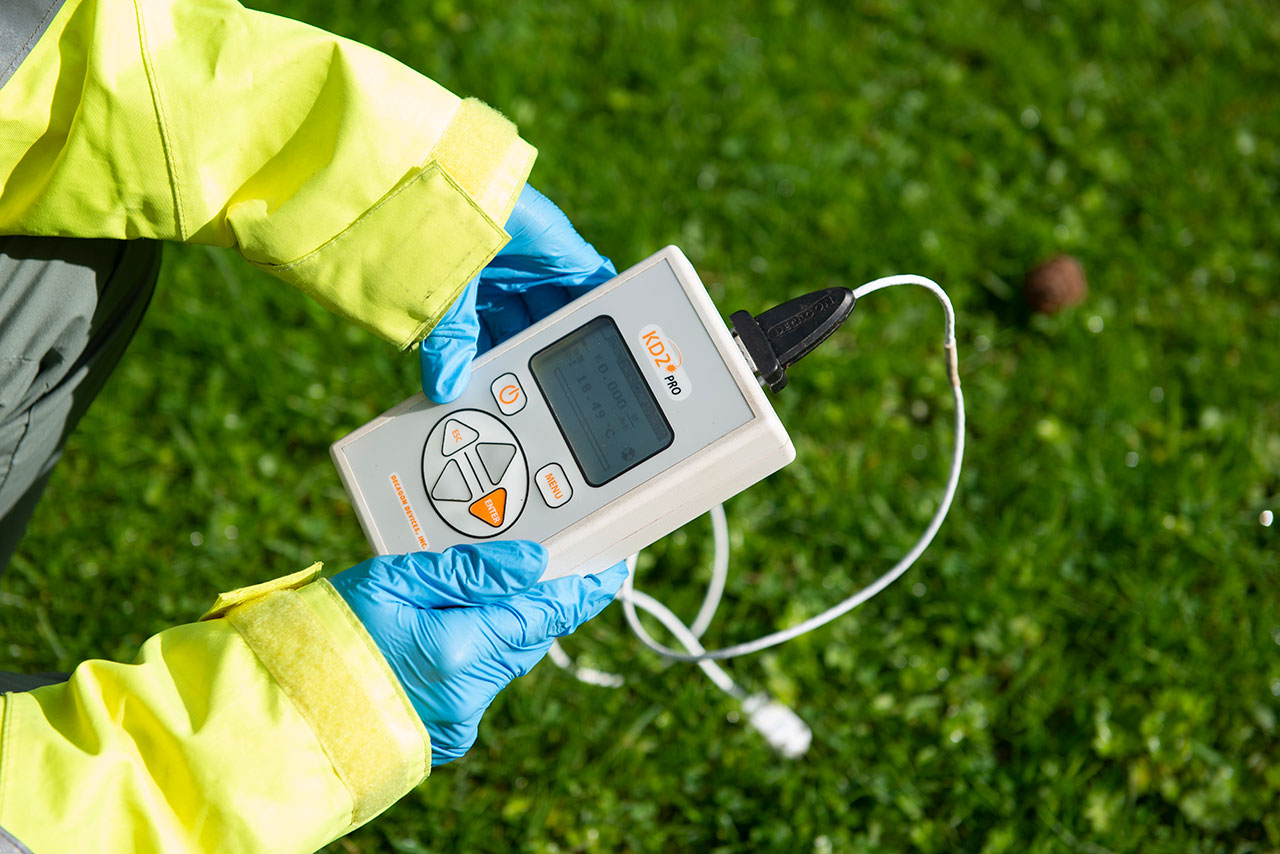BGS joins European Geothermal Congress to highlight UK’s geothermal potential
The European Geothermal Congress will discuss how the geothermal sector can help with the energy crisis.
21/10/2022 By BGS Press
BGS scientists are joining more than 1000 participants in the European Geothermal Congress in October in Berlin, to discuss how the geothermal sector can help provide answers to the energy crisis and highlight research being undertaken in the UK.
The event brings together the geothermal community to discuss innovations, research and development, with opportunities for networking.
Presentations and research papers will be delivered by:
- Dr Corinna Abesser, BGS Head of Geothermal Energy Research
- Dr Alison Monaghan, BGS Principal Geologist
- David Boon, BGS Senior Engineering and Geothermal Geologist
Geothermal energy is the heat generated and stored in the ground and is a source of low-carbon, renewable energy. It is homegrown, available throughout the UK at depths from a few metres to several kilometres and can provide heat or power all year long. It is not dependent on weather conditions and can deliver baseload energy for balancing more intermittent power generation from renewable sources, like solar or wind.
Despite this, geothermal technologies currently deliver less than 0.3 per cent of the UK’s annual heat demand, using only a fraction of the estimated available geothermal heat resource.
Dr Abesser recently undertook a position with the Parliamentary Office of Science and Technology (POST), which produces impartial, peer-reviewed briefings designed to make scientific research accessible to UK Parliament.
In her latest briefing paper on the potential of geothermal energy, Dr Abesser says that bespoke regulatory systems, licensing and management are urgently needed, along with Government support, to develop the UK’s geothermal sector.
Some stakeholders argue that the absence of long-term targets and policies that support the development of skills, supply chains and a service industry are one of the main reasons why geothermal energy in the UK has fallen behind that of other, similar countries.
Lack of information regarding the application of geothermal technologies in the UK has also meant that deep geothermal is not currently factored into the UK’s carbon budget or Government strategies. Rollout may require long-term Government support to develop pilot projects and expand the industry.
Dr Corinna Abesser, BGS Head of Geothermal Energy Research.
There is currently no bespoke regulatory system for the licensing, ownership or management of the geothermal resource in the UK. Instead, activities are controlled under regulations originally developed for petroleum exploration or water resource use and protection.
Streamlining the regulatory process is regarded by some in the industry as an important measure to facilitate the wider uptake of geothermal technologies, for example by assigning a geothermal regulator or agency to coordinate the approval process. This could reduce costs to projects and speed up delivery.
There is a consensus among geothermal stakeholder groups that a ‘route to market’ is needed for the geothermal sector to develop in the UK. Alongside improved regulation, building a successful market framework for geothermal development might be achieved by adopting strategies similar to those provided to other sectors, such as offshore wind.
Dr Corinna Abesser.
BGS is working in partnership with The Coal Authority to explore the potential of recovering heat from naturally warmed water in disused coal mines, collaborating on research and development to help scale up the delivery of mine water heat in a sustainable way, whilst also delivering net zero carbon and levelling up outcomes for coalfield communities.
One such initiative delivered by BGS is the UK Geoenergy Observatory in Glasgow, an at-scale, flexible research infrastructure designed to investigate shallow, low-temperature mine-water heat energy and potential heat storage resources. The observatory complements existing and planned mine-water heat supply schemes, offering a unique capability for understanding how to balance our need for energy resources with keeping people safe, and providing evidence for environmental protection.
The Coal Authority is speaking with a number of local authorities and organisations across Great Britain to help mine-water heat become a working, sustainable, low-carbon heat source for many more homes and businesses located above former coal mines. This work has already facilitated the construction of the first large-scale mine-water heat network in Gateshead.
BGS is also collecting data from the natural groundwater system below the city of Cardiff, using a network of 61 boreholes equipped with temperature and water-level sensors, to build up a picture of the groundwater temperatures in the aquifer found just ten metres below the ground surface.
A study of the data collected between 2015 and 2018 indicates that the large heat resources stored in the UK’s underground water systems could sustain ‘shallow open-loop ground-source heat pump systems’, which are a low-carbon heating approach widely used in other European cities.
The European Geothermal Congress is organised by the European Geothermal Energy Council (EGEC), in cooperation with the German Geothermal Association.
More information
- BGS briefing paper: Who owns geothermal heat?
- UK Geoenergy Observatories: New clean energy is closer than you think
- Cardiff Urban Geo Observatory: Untapped heat source beneath UK streets could pave the way for greener towns and cities
- BGS Geothermal podcast: Geothermal energy with Corinna Abesser, David Boon and Gareth Farr



